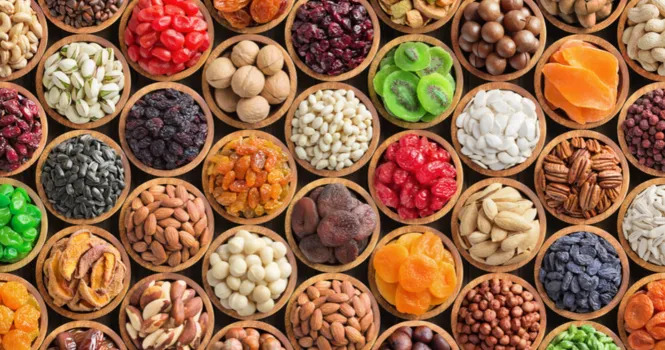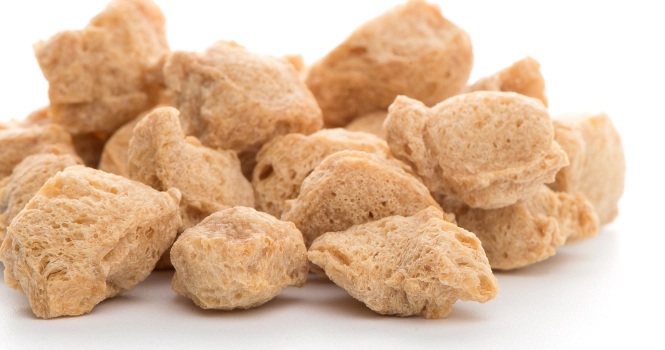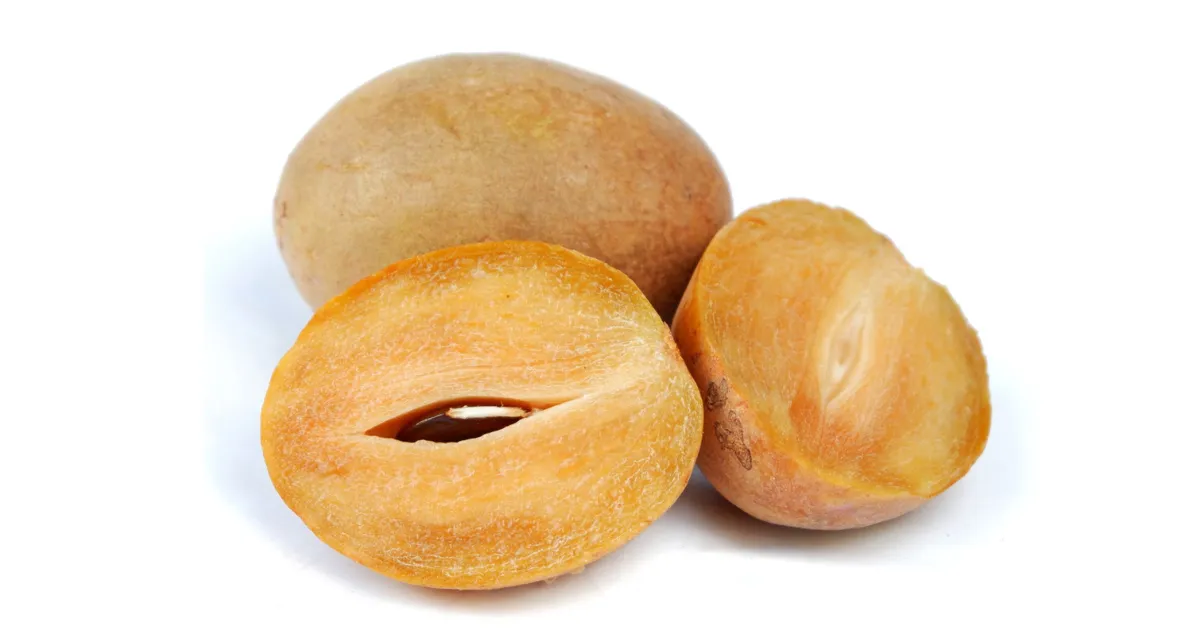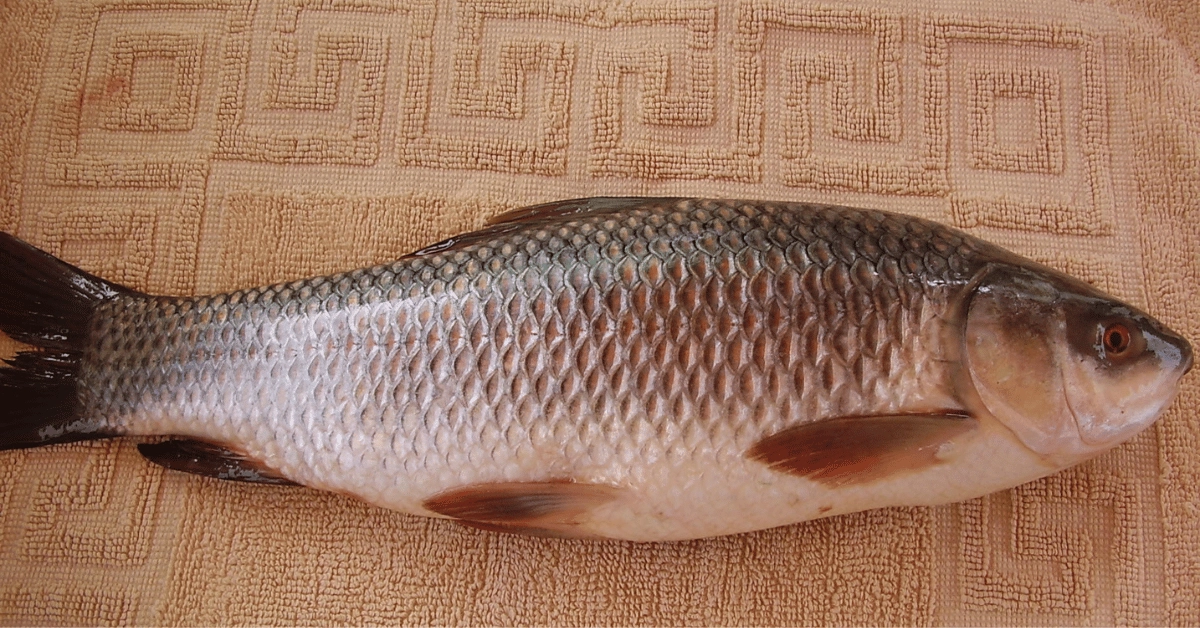Dry Fruits: Nature’s Tasty Treasures for Health and Happiness

Dry fruits are really good for you. They are tasty snacks that come from fresh fruits with the water taken out. This makes them last longer and keeps lots of healthy stuff like vitamins and minerals. They are great for a quick snack and help you stay healthy. Dry fruits are one of nature’s best treats for both health and happiness.
List of all Dry Fruits
Dry fruits are fruits from which the majority of the water content has been removed either naturally, through sun drying, or through the use of specialized dryers or dehydrators. The following is a list of common dry fruits:
1. Almonds
2. Walnuts
3. Cashews
4. Pistachios
5. Raisins (dried grapes)
6. Dates
7. Prunes (dried plums)
8. Dried Apricots
9. Figs
10. Dried Cranberries
11. Pine Nuts
12. Hazelnuts
13. Pecans
14. Brazil Nuts
15. Macadamia Nuts
16. Dried Peaches
17. Dried Apples
18. Dried Cherries
19. Dried Mangoes
20. Dried Papayas
21. Dried Bananas
22. Dried Pears
23. Dried Berries (like blueberries, strawberries, and goji berries)
24. Sun-dried Tomatoes (though not typically thought of as a dry fruit, they fall into this category)
25. Dried Coconut
This list includes a mix of true nuts, seeds, and fruits. Each type of dry fruit has its unique taste and nutritional profile. They are often used in cooking, baking, and as snacks.
Remember, while dry fruits are nutritious, they are also high in sugar and calories, particularly in their dried form, so moderation is key.
Dry Fruits Benefits
Dry fruits are a popular and nutritious snack option, offering a variety of health benefits. The key advantages of incorporating dry fruits into your diet:
1. Rich in Nutrients: Dry fruits are highly nutritious. They are rich in vitamins, minerals, proteins, and fiber. For instance, almonds are a good source of Vitamin E and magnesium, while walnuts provide omega-3 fatty acids.
2. Antioxidants: Many dry fruits, like raisins and prunes, are packed with antioxidants. These compounds can help fight free radicals in your body, reducing oxidative stress and potentially lowering the risk of chronic diseases.
3. Weight Management: Despite their high calorie and fat content, dry fruits can be a part of a weight management diet when consumed in moderation. The fiber in dry fruits can help keep you full for longer periods, reducing overall calorie intake.
4. Heart Health: Regular consumption of certain dry fruits, like almonds and walnuts, has been linked to a lower risk of cardiovascular diseases. They can help in reducing bad cholesterol levels and improving artery health.
5. Controlled Blood Sugar Levels: Some dry fruits, particularly those with lower glycemic indices like apricots and prunes, can help in maintaining stable blood sugar levels. For a detailed guide on which dry fruits are especially helpful in controlling diabetes, check out our article on the best dry fruits for managing diabetes.
6. Improved Digestive Health: The dietary fiber in dry fruits aids in digestion and can help prevent constipation.
7. Stronger Bones: Dry fruits like figs and almonds are good sources of calcium and other minerals, which are crucial for maintaining bone health.
8. Healthy Skin and Hair: The vitamins and minerals in dry fruits are beneficial for skin and hair health. For instance, almonds are known for their positive effects on skin texture and hair strength.
It’s important to note that while dry fruits are healthy, they should be consumed in moderation due to their high sugar and calorie content. Also, it’s best to choose varieties that are free of added sugars and preservatives.
As with any dietary change, it’s advisable to consult with a healthcare professional, especially for individuals with specific health conditions or dietary restrictions.
Frequently Asked Questions
Which nuts are good for PCOD?
Polycystic Ovary Syndrome (PCOD or PCOS) is a common health condition affecting women, characterized by hormonal imbalance and metabolic issues. Diet plays a crucial role in managing PCOS, and certain nuts can be particularly beneficial due to their nutrient profile. Here are some nuts that are often recommended for individuals with PCOS:
1. Almonds: Rich in magnesium, almonds can help in managing insulin resistance, a common issue in PCOS. They are also a good source of protein and healthy fats.
2. Walnuts: These nuts are high in omega-3 fatty acids, which can help reduce inflammation and improve heart health. This is particularly beneficial for PCOS, as women with this condition are at a higher risk of heart diseases.
3. Pistachios: Low in calories yet high in protein, pistachios can help in weight management, a key aspect of PCOS management. They also have a low glycemic index, which is beneficial for blood sugar control.
4. Cashews: Although higher in carbs than other nuts, cashews are a good source of magnesium and can help in balancing hormones.
5. Flaxseeds: While not a nut, flaxseeds are often included in discussions about beneficial seeds for PCOS. They are high in fiber and omega-3 fatty acids and can help in managing PCOS symptoms.
6. Chia Seeds: Another seed worth mentioning, chia seeds are rich in omega-3 fatty acids, fiber, and protein, making them a good addition to a PCOS diet.
When incorporating nuts into your diet for PCOS management, it’s important to remember:
- Moderation: Nuts are calorie-dense, so they should be eaten in moderation, especially if weight management is a goal.
- Unprocessed and Unsweetened: Opt for raw or dry-roasted nuts without added sugars or salts.
- Whole Diet Approach: Nuts are just one part of a holistic diet approach for PCOS. A balanced diet rich in whole grains, lean proteins, fruits, vegetables, and healthy fats is important.
It’s always recommended to consult with a healthcare provider or a registered dietitian for personalized dietary advice, especially when managing a health condition like PCOS.












